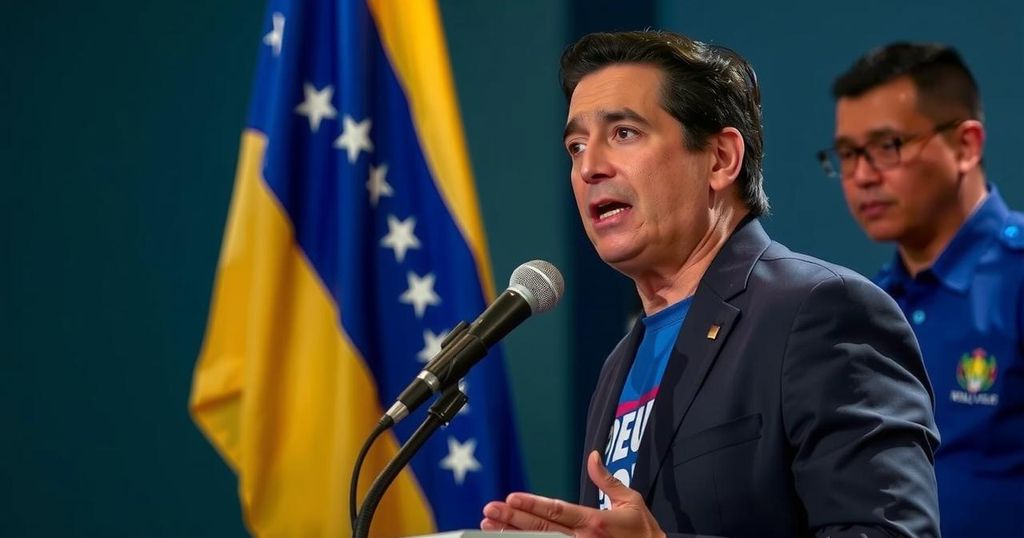U.S. Recognizes Edmundo González as Venezuela’s President-Elect Amid Election Controversy

The U.S. recognized opposition candidate Edmundo González as Venezuela’s president-elect following the disputed July elections, while Maduro’s government continues to assert its legitimacy. International criticism regarding electoral transparency persists, and key global leaders are reconsidering their stances on the election outcomes.
On Tuesday, the United States government formally acknowledged Edmundo González, a Venezuelan opposition candidate, as the “president-elect” of Venezuela, a status he claimed following the contested election held in July. This recognition came months after President Nicolás Maduro proclaimed his victory in the July 28 electoral process. U.S. Secretary of State Antony Blinken emphasized the need for adherence to the Venezuelan populace’s electoral will in a post on the social media platform X. While U.S. officials assert that González secured the highest number of votes during the disputed election, they have refrained from a full endorsement of his presidency. This uncertainty arises due to the Venezuelan National Electoral Council, who aligned with President Maduro, which declared him the winner shortly after polls closed without providing detailed vote counts. Nevertheless, the opposition gathered results from nearly 80% of electronic voting machines, alleging that González received double the votes of Maduro. In response to Blinken’s recognition, González expressed gratitude, stating it reflects the collective aspirations of Venezuelans for change, particularly emphasizing the civic resolve exhibited during the election. Following the issuance of an arrest warrant related to the vote tally sheets, González sought refuge in Spain in September. Venezuela’s Foreign Minister, Yván Gil, chastised Blinken, urging him to consider his administration’s failures instead of attempting to dictate Venezuela’s electoral integrity. Maduro’s regime has consistently dismissed demands from various nations, including the U.S. and the European Union, to disclose comprehensive voting records supporting Maduro’s claimed victory. In response to the global condemnation regarding the election’s transparency, Maduro requested an audit from the Supreme Tribunal of Justice, which ultimately reaffirmed his victory.
The political landscape in Venezuela has been highly tumultuous, characterized by disputed elections and contentious governance. The July 2023 presidential election, which saw President Nicolás Maduro claiming victory amidst accusations of electoral fraud, further exacerbated divisions within the country. The opposition, rallying behind figures like Edmundo González, collected unofficial vote data indicating that González might have triumphed with higher support than Maduro. This situation has prompted external actors, notably the United States, to weigh in, leading to significant international attention and varying responses from neighboring countries.
The recent acknowledgment of Edmundo González as Venezuela’s president-elect by the United States marks a significant shift in the international perception of Venezuela’s governance. This decision highlights ongoing international concerns surrounding the legitimacy of presidential elections in Venezuela, particularly following claims of electoral fraud by Maduro’s administration. As the political scenario continues to unfold, it underscores the complexities surrounding Venezuela’s democratic processes and the aspirations of its citizens for political reform and accountability.
Original Source: apnews.com








